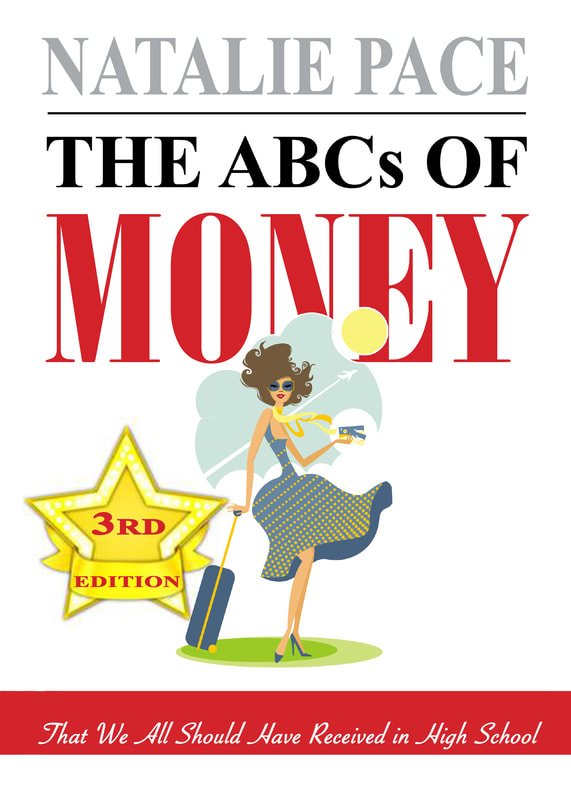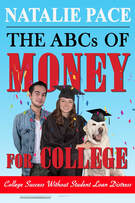|
How is it that Warren Buffett pays less in taxes (percentage-wise) than his executive assistant? Why is it that Americans often lose their family wealth within 3 generations, while many European families have intergenerational wealth that spans the centuries? It has everything with eschewing the groupthink, and embracing the laws and strategies that are designed to create, secure and transfer wealth. Wealth Myths That Keep You Poor 1. Cutting out café lattes and avocado toast will solve your budgeting problems. 2. Buy and hold is your best retirement strategy. 3. Debt is a four-letter word. 4. Buy your first house as soon as you get your first job. 5. Launch your passion business on credit cards. 6. Hot tips from friends, family and celebrities. 7. Money is private. 8. I can’t afford college. 9. If I pay my bills on time, my FICO score will stay high. 10. Interest rates are so low that you should buy a home now! 11. Buy FANG* now! *Facebook, Apple/Amazon, Netflix/Nvidia, Google. Below each myth is translated into the truth. Each number correlates with the number above. Prosperity Truths That Create Lasting Wealth 1. The Thrive Budget. 50% to survive affords you 50% to thrive. Limiting your basic needs expenditures and increasing your passive income earning is the only ticket out of living hand-to-mouth. 2. Proper diversification with 1-3 times a year rebalancing is your best retirement strategy. Buy & Hope lost more than half on the equity side in the last two recessions. 3. There is good debt, and there is bad debt. Knowing which is which, and how to leverage safely to a better life, is the ticket out of the rat race. 4. Buying a home is one of the best things you can do to create wealth. However, there are a few simple rules that you must always follow to ensure a gainful, rewarding purchase. 5. Professionals and successful entrepreneurs access other people’s money and talent for their start-ups rather than high-cost credit cards for financing. (That’s why so many tech startups issue stock and stock options to the launch crew.) 6. Hot tips from friends, family and celebrities are the most common way to lose money. Grade your guru (and friends, family, celebrities) before you listen to anything they say. 7. Intergenerational wealth is kept over the centuries by taking a view 100-years in advance. This includes a wealth plan, governance, appropriate business entities, mentors, board members and financial education. 8. Education is the highest correlating factor with income. However, there is also over $1.54 trillion in student loan debt. So, getting the best degree you can in a carefully designed plan that costs half of what most people pay is the best approach! It’s hard to get a job in the developed world without a Bachelor’s Degree. It’s easy to be employed with a Masters’ Degree or higher. 9. 30% of the FICO score is based upon your assets to debt. So, your credit can go in the toilet, even if you pay your bills on time, if your debt is higher than your savings and investments. This can happen easily in a recession, if you purchase expensive assets at the top of the market. 10. If you purchase a home that is more than you can afford, or at an all-time high price (which is where most home prices are), then you are putting yourself at risk on many different fronts. Never buy high, even if you think you can make the payment and especially if the mortgage and real estate brokers are trying to hustle you in. 11. FANG stocks have returned 60% since March. However, they also lost 25-40% in the weeks prior to that! FANG stocks are hot, and hot stocks can be overweighted in your diversified plan. Buying high is never a good idea, however. Going all in on any one bet is an easy ticket to the poor house. The adage is buy low, sell high. Use 1-3 times a year rebalancing as a buy low, sell high plan on autopilot. See below for additional color on each point. 1. The Thrive Budget. Today’s world doesn’t add up. It requires rethinking the big-ticket items to get to a budget that is workable. That is why there is a growing trend toward intergenerational housing. If you can cut the amount that you spend on housing, transportation, medical insurance, gasoline, debt and utilities, then you’ll save thousands annually that can be invested in your retirement plan, education (college funds), fun and charity. I outline how to save thousands with smarter big-ticket choices in the Thrive Budget section of The ABCs of Money and at my Investor Educational Retreats. Cutting out café lattes and avocado toast might save you hundreds, but it won’t transform your life. 2. Proper diversification with 1-3 times a year rebalancing is your best retirement strategy. Buy & Hope lost more than half in stocks in each of the last two recessions. This time around, bonds are vulnerable as well. Fortunately, getting safe, protected, hot and diversified is easy-as-a-pie-chart. This strategy earned gains in the last two recessions and has outperformed the bull markets in between. You can learn this at my Investor Educational Retreats and read about them in my book The ABCs of Money. You can also call our office at 310-430-2397 to receive an unbiased 2nd opinion that includes an easy-to-understand pie chart of your current plan, side by side with our time-proven plan. You’ll also receive a line-item action plan that you can choose to follow (or not). If you have a lot of wealth in your 401K, retirement plan, brokerage account and investments – even if these plans are actively managed – it’s a good idea to get an unbiased 2nd opinion now. 3. There is good debt, and there is bad debt. Education can be good debt, providing you: 1) are conscious of the income-earning potential, 2) keep the debt as low as possible, and, 3) graduate with the best degree for your field. For-profit schools have a very low graduation rate, while nonprofit Ivy League schools have a very high graduation and employment rate. Read The ABCs of Money for College to develop the educational plan that is right for you. Buying a home can be good debt, too, if you buy what you can afford and purchase your estate for a good price. 4. Buying a home is one of the best things you can do to create wealth. However, there are a few simple rules that you must always follow to ensure a gainful, rewarding purchase. In short, you need to buy what you can afford, plan on living there for 7-12 years and apply the 3-Ingredient Recipe for Cooking Up Profits. You should also consider intergenerational housing to keep the wealth in the family. Princes and princesses don’t purchase their own castles! Read housing case studies in the Real Estate section of The ABCs of Money. 5. Professionals and successful entrepreneurs access other people’s money and talent for their start-ups rather than high-cost credit cards and debt financing. If you launched your business on credit cards, that is very high-cost capital, which can easily drain your budget and nest egg – particularly in recessions. Rather than hang on and sink your life boat (your retirement plans) to keep an unsustainable business alive, it’s important to look at debt solutions that keep more of your wealth intact. If you are getting your debt strategy from the credit card debt collector, you are getting information that makes them rich at your expense. It’s important to know what is possible and to make an informed decision, putting your best interests at the heart of the matter. 6. Hot tips from friends, family and celebrities are the most common way to lose money. When a celebrity claims to have a specialist in a field, they are receiving a large percentage of whatever that “guru” sells you. If someone is speaking on the stage that is sponsored by a bestselling author, the author might receive up to half of the sales. The vetting process is much lighter than you might think. Friends and family are oftentimes receiving no real vetting at all – just blind faith. Once you learn The ABCs of Money that we all should have received in high school, and learn how to grade your guru before you listen to anything s/he says, you’ll never be vulnerable again! You can place wisdom and time-proven strategies at the heart of your investment game plan. 7. Intergenerational wealth is kept over the centuries by taking a view 100-years in advance. This includes the wealth plan, governance, appropriate business entities and financial education. As one example, when Prince Charles became the Duke of Cornwall and The Prince of Wales, he took oaths, answered to boards and was educated by his family on how to become a responsible steward of the lands he oversees. Prince Harry didn’t become The Duke of Sussex until he married. Same for Prince William, who is now The Duke of Cambridge. The Duke of Cambridge will become The Duke of Cornwall and The Prince of Wales, when his father is King. These are roles they spend their entire life preparing for. You can invest in the financial literacy and family plan that ensures your family preserves wealth over the centuries, too. 8. Education is the highest correlating factor with income. Whether you are interested in a trade or a profession, education is the key to success. However, the route for each, and for each individual, is unique. If you come at this from the angle of the “College Experience,” and attending the place that will accept you, then you are more likely to be caught in the college debt trap. If you read The ABCs of Money for College and practice the exercises and information found therein, then you can design a better degree for half the student loan debt (or more). 9. 30% of the FICO score is assets to debt. So, your credit can go in the toilet, even if you pay your bills on time. If you are spending a lot of money servicing your debt, it’s time to design a new game plan that puts earning money while you sleep at the center of your focus. Debt is, at its heart, a budgeting problem. So, any strategy that does not include learning how to save thousands annually with smarter big-ticket choices and increasing your income with passive investing, is not going to be successful. 10. If you purchase a home that is more than you can afford, or at an all-time high price (which is where many home prices are), then you are putting yourself at risk on many different fronts. If the prices fall, your mortgage will be underwater, and your FICO score will sink like a rock. If you can’t afford the payments and you fall behind, you risk losing your home. Being property rich and cash poor, or underwater on your mortgage, is very stressful and is difficult on your family. Many times, it can take a decade to extricate yourself from the financial fall-out of those poor choices. 11. FANG stocks have returned 60% since March. Stocks are at an all-time high. We are in a recession. In the last two recessions, stocks lost more than half of their value. After the Dot Com Recession, it took the NASDAQ Composite Index 15 years to crawl back to even. The only two times in history that stock prices have been higher were in 1929 (before the Great Depression) and in 2000 (before the Dot Com Recession, when the NASDAQ Composite Index dropped up to 78%). Let wisdom and time-proven strategies form the foundation of your life for greater prosperity and abundance for you and your forebreasr to come. Learn more in The ABCs of Money 3rd edition, at my investor educational retreats, by receiving an unbiased 2nd opinion, by watching my videoconferences and by reading my blogs. Call 310-430-2397 or email [email protected] for help determining the strategy that is right for you. Learn the ABCs of Money that we all should have received in high school at our Oct. 3-5, 2020 Investor Educational Retreat. Click on the banner ad below for additional information on the Oct. 3-5, 2020 Online Financial Empowerment Retreat. Families receive a discount for attending together. Call 310-430-2397 or email [email protected] for to get rates. "Many people, including educated men and women, often get into trouble when they neglect to follow simple and fundamental rules of the type provided [by Natalie]. This is why I recommend them with enthusiasm." Professor Gary S. Becker. Dr. Becker won the 1992 Nobel Prize in economics for his theories on human "College students need this information before they get their first credit card. Young adults need it before they buy their first home. Empty nesters can use the information to downsize to a sustainable lifestyle, before they get into trouble." Joe Moglia, Chairman, TD AMERITRADE. Other Blogs of Interest Protecting Your Wealth and Home in a Recession. Technology and Silver are Golden. The Economy Contracts 32.9% in the 2nd Quarter of 2020. Real Estate: Feeling Equity Rich? Make Sure That Feeling Isn't Fleeting. Airline Revenue Plunges 86%. 10 Questions for College Success Bank Earnings Season. Crimes. Cronyism. Speculation. Real Estate Solutions for a Post-Pandemic World. Copper and Chile Update. Gold Soars. Some Gold Funds Tank. Will the Facebook Ad Boycott De-FANG Stocks? Why Did My Cannabis Stock Go Down? Which Countries Are Hot in a Global Pandemic? Is Your Financial Advisor Good at Navigating Stormy Seas? $10 Avocados, Lies, Damn Lies, Statistics & Wall Street Secrets. It's Never a Crash. Work From Home and Intergenerational Housing. Biotech Races for a Coronavirus Cure. Are You Worried About Money? May is a Good Time for Rebalancing. Is FDIC-Insured Cash at Risk of a Bank Bail-in Plan? Why Did my Bonds Lose Money? Cannabis Update. Recession Proof Your Life. Free Videocon Monday, May 10, 2020. The Recession will be Announced on July 30, 2020. Apple Reports Terrible Earnings. We Are in a Recession. Unemployment, Rising Stocks. What's Going On? 8 Money Myths, Money Pits, Scams and Conspiracy Theories. 21st Century Solutions for Protecting Your Home, Nest Egg & Job. Wall Street Insiders are Selling Like There is No Tomorrow. Why Are My Bonds Losing Money? Tomorrow is Going to be Another Tough Day. Price Matters. Stock Prices are Still Too High. Should You Ride Things Out? 7 Recession Indicators Corona Virus Update. The Bank Bail-in Plan on Your Dime. NASDAQ is Up 6X. CoronaVirus: Which Companies and Countries Will be Most Impacted. Is Tesla Worth GM and Ford Combined. Artificial Intelligence is on Fire. Is it Time to Buy S'More? Take the Retirement Challenge. 2020 Investor IQ Test. Answers to the 2020 Investor IQ Test. The Cannabis Capital Crunch and Stock Meltdown. Does Your Commute Pollute More Than Planes? Are Health Care Costs Killing Your Budget? 2020 Crystal Ball. The Benefits of Living Green. Featuring H.R.H. The Prince of Wales' Twin Eco Communities. What Love, Time and Charity Have to do with our Commonwealth. Interview with MacArthur Genius Award Winner Kevin Murphy. Unicorns Yesterday. Fairy Tales Today. IPO Losses Top $100 Billion. Price Matters. Will There be a Santa Rally? It's Up to Apple. Harness Your Emotions for Successful Investing. What the Ford Downgrade Means for Main Street. The Dow Dropped Over 1000 Points Do We Talk Ourselves into Recessions? Interview with Nobel Prize Winning Economist Robert J. Shiller. Ford is Downgraded to Junk. Gold Mining ETFs Have Doubled. The Gold Bull Market Has Begun. The We Work IPO. The Highs and Hangovers of Investing in Cannabis. Recession Proof Your Life. What's Your Exit Strategy? It's Time To Do Your Annual Rebalancing. Are You Suffering From Buy High, Sell Low Mentality? Financial Engineering is Not Real Growth. The Zoom IPO. Uber vs. Lyft. Which IPO Will Drive Returns? Boeing Cuts 737 Production by 20%. The Lyft IPO Hits Wall Street. Should you tak Cannabis Doubles. Did you miss the party? 12 Investing Mistakes The High Cost of Free Advice. 2018 Was the Worst December Since the Great Depression. Russia Dumps Treasuries and Buys Gold OPEC and Russia Cut Oil Production. Important Disclaimers Please note: Natalie Pace does not act or operate like a broker. She reports on financial news, and is one of the most trusted sources of financial literacy, education and forensic analysis in the world. Natalie Pace educates and informs individual investors to give investors a competitive edge in their personal decision-making. Any publicly traded companies or funds mentioned by Natalie Pace are not intended to be buy or sell recommendations. ALWAYS do your research and consult an experienced, reputable financial professional before buying or selling any security, and consider your long-term goals and strategies. Investors should NOT be all in on any asset class or individual stocks. Your retirement plan should reflect a diversified strategy, which has been designed with the assistance of a financial professional who is familiar with your goals, risk tolerance, tax needs and more. The "trading" portion of your portfolio should be a very small part of your investment strategy, and the amount of money you invest into individual companies should never be greater than your experience, wisdom, knowledge and patience. Information has been obtained from sources believed to be reliable. However, NataliePace.com does not warrant its completeness or accuracy. Opinions constitute our judgment as of the date of this publication and are subject to change without notice. This material is not intended as an offer or solicitation for the purchase or sale of any financial instrument. Securities, financial instruments or strategies mentioned herein may not be suitable for all investors.
Comments are closed.
|
AuthorNatalie Pace is the co-creator of the Earth Gratitude Project and the author of The Power of 8 Billion: It's Up to Us, The ABCs of Money, The ABCs of Money for College, The Gratitude Game and Put Your Money Where Your Heart Is. She is a repeat guest & speaker on national news shows and stages. She has been ranked the No. 1 stock picker, above over 830 A-list pundits, by an independent tracking agency, and has been saving homes and nest eggs since 1999. Archives
July 2024
Categories |












 RSS Feed
RSS Feed